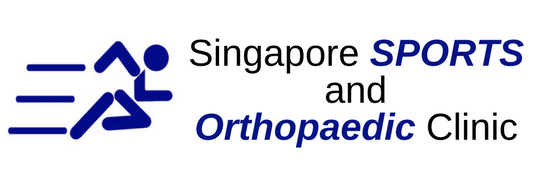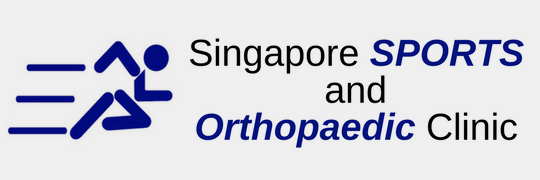What is Rheumatoid Arthritis?
Rheumatoid arthritis (RA) is a chronic autoimmune disorder affecting joints. The body’s immune system mistakenly attacks the lining of the joints, causing inflammation and pain. If left untreated, it can lead to joint damage and disability.
Rheumatoid arthritis is a chronic autoimmune disorder affecting millions worldwide, causing joint pain, swelling, and stiffness. Early detection of rheumatoid arthritis is crucial for managing symptoms and preventing joint damage.
Our team of experienced doctors and therapists at Singapore Sports and Orthopaedic Clinic is dedicated to providing the latest information and treatments for rheumatoid arthritis. Read on to learn more about recognising the early signs of rheumatoid arthritis and the innovative treatments available to help manage this condition.
Early Signs of Rheumatoid Arthritis
Early detection of rheumatoid arthritis is crucial for managing the symptoms and preventing joint damage. Here are some early signs and symptoms to look out for:
- Joint Pain and Stiffness: One of the most common early signs of rheumatoid arthritis is joint pain and stiffness, especially in the morning or after inactivity. The pain can be constant or come and go.
- Swelling and Warmth: You may notice swelling and warmth around the affected joints.
- Fatigue: Many people with rheumatoid arthritis experience fatigue, even with enough rest.
- Reduced Range of Motion: You may notice a reduced range of motion in the affected joints.
- Flu-like Symptoms: Some people with rheumatoid arthritis may experience flu-like symptoms such as fever, loss of appetite, and general malaise.
If you are experiencing any of these symptoms, seeing a doctor for an accurate diagnosis is essential. Early diagnosis and treatment can help prevent further joint damage and disability.
New Treatments for Rheumatoid Arthritis
The treatment of rheumatoid arthritis has come a long way in recent years. Here are some of the newest treatments available:
Biologic Drugs: Biologic drugs are a type of medication that targets specific parts of the immune system that cause inflammation. These drugs are administered by injection or infusion and can help reduce joint inflammation and prevent further damage.
Disease-modifying anti-rheumatic drugs (DMARDs): As part of your initial therapy for rheumatoid arthritis, you will often be given a combination of DMARD medications. These drugs lessen the condition’s symptoms and stop it from getting worse. When your immune system attacks your joints, chemicals are generated that could otherwise further harm adjacent bones, tendons, ligaments, and cartilage. DMARDs prevent these chemicals’ effects.
Biologic DMARDs may be used individually or with a traditional DMARD for treating inflammatory arthritis. They can be further classified by the proteins they target:
- Tumour necrosis factor (TNF) inhibitors. TNF causes inflammation and may be elevated in people with inflammatory arthritis. TNF inhibitors include adalimumab, infliximab, etanercept, golimumab, and certolizumab pegol.
- Interleukin-6 (IL-6) inhibitors. IL-6 is involved in the inflammation of the joints in rheumatoid arthritis. IL-6 inhibitors include tocilizumab and sarilumab.
- IL-1 inhibitors. These include anakinra and canakinumab, which block IL-1, another immune system protein involved in inflammation.
- IL-17 inhibitors and IL-12/23 inhibitors. These drugs are helpful in the treatment of psoriatic arthritis and ankylosing spondylitis. They include secukinumab, ixekizumab, and ustekinumab.
- Rituximab. This drug works by depleting B cells – white blood cells that play a role in the immune response and are involved in forming autoantibodies.
- Abatacept. This drug interferes with specific immune cells, called T cells, which are involved in inflammation in rheumatoid arthritis.
Janus Kinase (JAK) Inhibitors: JAK inhibitors are a newer class of medication that blocks the action of certain enzymes in the body that contribute to inflammation. They are taken orally and can help reduce joint inflammation and improve physical function.
Stem Cell Therapy: Rheumatoid arthritis is a chronic autoimmune inflammatory disease that may benefit from mesenchymal stem cell therapy. The power of stem cells to develop into any cell type in the body is unparalleled. Differentiation is the name given to this process. Intravenously injected stem cells can be used to locate and restore damaged tissue throughout the body. Stem cells can heal damaged tissue in patients with rheumatoid arthritis to lessen discomfort and improve mobility. The ability of mesenchymal stem cells to reduce inflammation is responsible for this result.
Immune system immunomodulation is a function of stem cells.
In individuals with autoimmune illnesses, stem cells may be able to control or calm an immune system that is out of balance. According to data, mesenchymal stem cells can immunosuppress the immune system’s reaction. They can suppress in vitro cytotoxic T-cell production in response to alloantigens and mitogens.
Exercise and Physical Therapy: Exercise and physical therapy can help improve joint function and reduce pain in people with rheumatoid arthritis. A physical therapist can develop a personalised exercise program that is safe and effective for people with rheumatoid arthritis.
Lifestyle Changes: Making lifestyle changes such as maintaining a healthy weight, quitting smoking, and reducing stress can help reduce inflammation and improve overall health.
Trying complementary and alternative medicine (CAM) therapies may help reduce symptoms in people with RA. Some approaches that may be useful include:
- Acupuncture
- Tai chi or yoga
- Cryotherapy
- Hydrotherapy
- Massage
Experimental Therapies for RA
Bruton’s Tyrosine Kinase (BTK) Inhibitor
Inhibitor of Bruton’s Tyrosine Kinase (BTK)
Fenebrutinib is an investigational drug that inhibits the activity of Bruton’s tyrosine kinase (BTK), an enzyme that causes inflammation in the body.
Fenebrutinib reduced RA activity in phase 2 clinical trial participants who had received an insufficient benefit from prior therapies. When compared to the well-known RA medication Humira (adalimumab), Fenebrutinib demonstrated comparable outcomes.
Scientists are enthusiastic about the potential of BTK inhibitors to treat RA, even if further research is required.
Neurostimulation
Researchers are looking into the possibilities of a treatment called vagus nerve stimulation, which uses electrical impulses to stimulate the vagus nerve, which connects the brain stem to the stomach. This nerve controls the body’s inflammatory response.
In a tiny pilot research, 14 RA patients received vagus nerve neurostimulators or placebos. According to the findings, the patients who underwent vagus nerve stimulation once a day for 12 weeks reported symptom relief in four out of six cases.
Supplements
In recent years, several clinical trials have been conducted to test supplements as possible treatments for RA.
Some compounds that have shown promise for RA include:
- Capsaicin
- Turmeric
- Omega-3 fatty acids
- Ginger
- Garlic
- CBD oil
- Boswellia serrata (Indian frankincense)
It would help to always talk to your healthcare provider before using a supplement, as many can interact with other medications you take.
RA Drug Side Effects
As with most treatments, RA drugs can cause unwanted symptoms.
Possible side effects of JAK inhibitors include:
- Nausea
- Headaches
- Diarrhoea
- Indigestion
- Upper respiratory infections or other infections
- An increase in cholesterol levels
- Abnormal blood counts or liver function tests
- An increased risk of bowel perforation
- Kidney function problems
At Singapore Sports and Orthopaedic Clinic, we offer a wide range of treatments for rheumatoid arthritis. Our experienced doctors and therapists will work with you to develop a personalised treatment plan that meets your needs and goals.
Rheumatoid arthritis can be debilitating, but early diagnosis and treatment can help manage the symptoms and prevent joint damage. If you are experiencing any early signs of rheumatoid arthritis, you must see a doctor for an accurate diagnosis. With the newest treatments available, there is hope for people with rheumatoid arthritis to lead a full and active life. Contact Singapore Sports and Orthopaedic Clinic today to schedule an appointment. Call us here for other medical inquiries.






